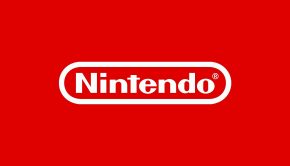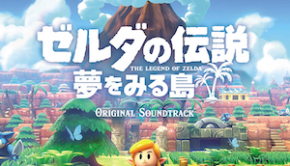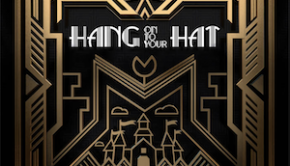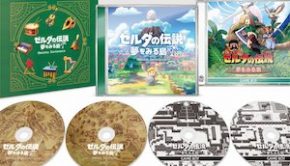The Legend of Zelda -The Wind Waker HD- Sound Selection
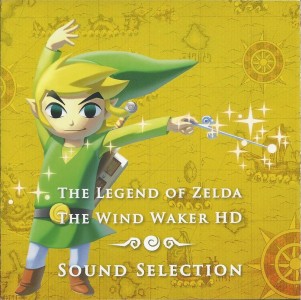 |
Album Title: The Legend of Zelda -The Wind Waker HD- Sound Selection |
| Record Label: Nintendo |
|
| Catalog No.: NTDT-17288 |
|
| Release Date: October, 2013 |
|
| Purchase: Buy Used Copy |
Overview
Despite its initial controversy over the use of cel-shaded, cartoon-esque graphics, The Legend of Zelda: The Wind Waker quickly became a beloved entry in the series after its release in 2003, and was hailed by fans and critics alike. Part of the reason for its success was actually its look and feel, which breathed a whole new life into Link, his companions, and the world around them. Another was the refined gameplay, which proved to be a worthy successor to the monumental Ocarina of Time, while pushing an emphasis on exploration which Zelda is originally known for. Still another was its score, which provided quite a few references to older games, while introducing a very Irish inspired theme that was all at once memorable, sprightly, and sweetly innocent. Its success was enough to warrant Nintendo to remake it for the Wii U in 2013, in an attempt to both experiment with Wii U’s HD graphics, and (along with Koei Tecmo’s Hyrule Warriors) create a stopgap for fans, as they eagerly await the new console entry in the series. Not long after its release, Club Nintendo of Japan also released a remastered soundtrack, exclusive to its members, making it a valuable collector’s item for some. With an all-star team of composers, including Kenta Nagata, Hajime Wakai, Toru Minegishi, Koji Kondo, Asuka Hayazaki, and Atsuko Asahi is The Legend of Zelda: The Wind Waker HD Sound Selection worth tracking down?
Body
There are numerous problems with The Wind Waker HD Sound Selection right from the start, but the most glaring is the fact that it is largely incomplete. Wind Waker’s music has been released before, commercially to boot, in The Legend of Zelda: The Wind Waker Original Soundtracks, published by Scitron Digital Contents. Overall, it was a great soundtrack, but one that had its issues due to being taken out of its game’s context. The Wind Waker, like Ocarina of Time and Majora’s Mask before it, features short melodies that players had to memorize, but Waker downplayed the majority of them to the point where most were little more than fanfares. Additionally, with a larger focus on cutscenes and storytelling, The Wind Waker has a large number of incidental pieces, which although effective in the game, fall largely flat as a standalone listening experience. The HD Sound Selection tries its best to trim out some of these unnecessary musical moments, but it also cuts out a lot of great location-based motifs, and a lot of music that is necessary to fully understand the story from a musical perspective. Remember that the original soundtrack release had over 130 tracks spread across two discs, while the HD Sound Selection only has 50 tracks on one disc. As is, The Wind Waker HD feels like only a part of the whole experience – which brings out larger issues as we move through the soundtrack.
Depending on who you are, a much larger problem with this soundtrack is simply the direction Nintendo took with the remaster. Similar to Ocarina of Time 3D’s soundtrack release, Nintendo has opted out of using live instruments in their remastering process; however, unlike Ocarina 3D, several tracks have been redone from the ground up using all new synthesizers. On the one hand, I can kind of understand why Nintendo’s sound team took that decision with Ocarina 3D, especially considering how important and ground-breaking the game was, including its sound and music design; its legacy is an important and huge factor. That being said, there is absolutely no excuse for The Wind Waker not using live instruments. There are moments on the soundtrack where you can hear the synthesizers struggling to maintain a realistic sound, more so when the score demands a solo instrument, like a violin or a harp. To its credit, the quality is good enough to allow you to feel the emotional weight behind the tracks, but the illusion of believability breaks quite easily thanks to the synths. Why Nintendo decided not to use a fully realized instrumental score for a game practically begging for one is beyond me, but this decision devalues the HD Sound Selection quite a bit, and makes some of the remastered elements somewhat needless.
Getting into the album now, where The Wind Waker truly shines is with its gorgeously constructed melodies and themes, especially its main theme. Played partially during “Title” and completely during “Staff Credits,” The Wind Waker’s main theme is a jaunty, joyous and emotional Irish jig that is endearing and magnificent. It cycles through several character leitmotifs, including “The Legend of Zelda Main Theme”, “Princess Zelda’s Theme,” and “Aryll’s Theme” before gently floating away into nothingness. While the arrangement has not been updated or changed in any way, the new mixing and volume levels are a nice touch. Part of the reason why Waker’s main theme works so well is its usage as two playable in-game songs, “Earth God’s Lyric” and “Wind God’s Aria,” which are actually two halves of the basic melody, played on harp and violin respectively. While not every version of these two small pieces are included here, the unfortunately fake sounding MIDI occasionally makes them sound less convincing than they were more than a decade ago. Stepping back a moment, “Princess Zelda’s Theme,” the short 50 second piece that fans are no doubt familiar with, is also present, though again, it’s simply not the best version we’ve heard of this iconic piece. Lastly, we have “Grandma” and “Pirates,” with the former being one of the most yearning and quietly sad pieces written for Zelda, and the latter being a boisterous, if a bit overbearing, theme that perfectly captures life on the high seas. Both have been updated, and they definitely sound better than their original versions, but only nominally.
The Wind Waker’s themes extend beyond character leitmotifs, and like Ocarina, hone in on giving locations their own feel and motifs. These also work wonderfully in The Wind Waker, starting with the fun and childlike “Outset Island,” which actually sounds quite better thanks to the redone sound. Not only is it a great theme on its own, but it smartly incorporates a portion of “Kokiri Forest” from Ocarina, and “Aryll’s Theme.” Sadly, the full version of “Aryll’s Theme” was left out of the main game, though it was included on the original soundtrack release, but yet again, it’s left out here, relegating the theme to passing mentions in a few tracks. No discussion of The Wind Waker’s music would be complete without mentioning “The Great Sea,” the main traveling motif, built around a seafaring rendition of “The Legend of Zelda Main Theme,” which still sounds as wonderful as it did a decade ago, thanks to its backing harmonies falling and rising like a literal wave, complementing the main theme’s melody well.
Two other stellar location themes, include “Windfall Island” and “Dragon Roost Island.” The former is a lively Celtic-styled music, which is in actuality a rearrangement of the classic “Kakariko Village” theme. The latter on the other hand, is an original Spanish inspired track that shines brightly on the soundtrack, and is very well loved by fans (to the point where it earned two different arrangements in the 25th Anniversary Symphony Concerts and Symphony of the Goddesses concert!). Another rearrangement comes in “Forest Haven” which also uses “Kokiri Forest,” in a sort of middle-eastern/ethnic percussion arrangement, which is interesting enough to earn repeated listens. Lastly, we also have “Fairy Spring,” yet another rearrangement, that sounds lovely, and even better than its previous versions. Unfortunately, a ton of other location based themes are largely discarded, including some necessary themes like “Tower of the Gods,” the brilliantly done sections of the old Hyrule Castle, and even “Ganon’s Castle,” which are huge losses to the soundtrack. One of my favorite aspects of The Wind Waker is also almost completely absent. Though Ocarina of Time and Majora’s Mask cemented ambience-based tracks, Waker pushed it to another level, thanks to some very dissonant chords, which were only magnified and made creepier thanks to the game’s family friendly tone, and featured some believably made soundscapes. This whole aspect is disappointingly edited out of the HD Sound Selection, save for the forgettable “Foresaken Fortress.”
Incidental music, crafted specifically for cutscenes, were some of the weakest aspects of the original soundtrack release, and thankfully they’ve been pretty much excised out. However, there are still some pretty bizarre choices in what was allowed in this release. First off, all the “Boss Appears” cues are present, and while they serve to better compliment the boss fight themes, they are very redundant, and add up to a little over three minutes of space that could’ve been better used for other tracks. We also get the typical chest-opening/item-collecting jingles that we’ve grown to expect of Zelda games and their soundtracks. One random cue punctuates the exact halfway point of the soundtrack with “Ceremony in the Woods,” which has not only been truncated from its original version, but features a truly annoying synthesized vocal performance from the in-game Koroks, which is enough to make me skip this 30 second cue. Why on earth this was included when so many other cutscene cues were taken out (most egregiously, “Aryll’s Kidnapping,” which is the pivotal moment that sets the plot in motion) is anyone’s guess. Thankfully, there are some long cutscene songs that help marginally balance this issue out, including “The Legendary Hero,” which underscores the long opening cinematic, setting the heroic yet moody backstory to The Wind Waker, thanks to a gorgeous, if a little artificial sounding, incorporation of the “Zelda Main Theme.” This is also smartly reused in both the sages’ themes, “Sage Laruto” and “Sage Fado,” which takes the melody introduced in “The Legendary Hero,” and transfers it over in different musical styles, including a melancholic choir and harp version, and a rhythmic violin version. The final act of The Wind Waker HD also has some lovely cues, from “Farewell Hyrule King,” a melancholic piano rendition of “Hyrule Castle” from A Link to the Past, “Ending,” which uses both the “Pirates” theme and “Aryll’s Theme” to great effect, and finally “Epilogue,” a fantastic ending which wraps everything up using the “Departure” motif (which is otherwise absent on this release), and the “Zelda Main Theme,” in an exuberant and evocative way.
However, where The Legend of Zelda: The Wind Waker HD Sound Selection completely stumbles is in its overuse of battle and boss themes. While occasionally engaging, the battle themes in Zelda have always been one-dimensional, and increasingly forgettable, although this is often made up by having stellar final boss themes. This is the case for Wind Waker, which features “Ganondorf Battle,” combining its new melody with “Ganon’s Theme,” to create something that’s ominous, urgent, and triumphant all at the same time. Another highlight is “Molgera,” centered around a relentless percussion and synth-vocal scatting-like element, this energetic boss theme captures the imagery of a young boy battling a large monster through its melody quite effortlessly. Some basic battle themes also make use of Nintendo’s dynamic sound designs, such as “Battle,” and “Mini-Boss,” though the repetitive sound hits that come out of these tracks deter whatever moodiness they have going for them. “Phantom Ganon,” is slightly more interesting, in part because it is a remix of both “Battle with Ganon” from A Link to the Past and “Ganondorf Battle” from Ocarina of Time. The dynamic effects work a bit better here, but the tribal-like percussion is distracting enough to not warrant repeated listens. As for the rest of the boss themes, which are roughly a little less than half of the running time? While doing things different each time, they’re just not that memorable and become too repetitive. Themes like “Gohma,” “Kalle Demos,” “Gohdan,” and “Jalhalla,” start to blend together before long, especially since the track skips over location themes, cutscene cues, and dungeon ambiences. After a while, HD Sound Selection feels less like a listening experience, and more like a subpar boss rush. This is especially the case with the trio of “Puppet Ganon” boss battle themes. None of them are interesting, and feel like they don’t have anything to do with Ganondorf himself, which is a real shame. The last 20 or so minutes of the album almost make the whole thing a disappointment, particularly because of this glaring pacing issue, and lack of breathing room.
Summary
While The Legend of Zelda: The Wind Waker’s soundtrack was nowhere near perfect, it still brought enough charm and mystery to make it a worthy part of this storied franchise. However, I cannot fully recommend The Legend of Zelda: The Wind Waker HD Sound Selection’s release, due, in part, to the fact that Nintendo’s soundtrack release policy makes this one impossible to find. But mostly, I can’t recommend it because as is, this soundtrack is full of disappointing issues, a “remastering” that adds close to nothing to the overall experience, and enough omissions to make it largely incomplete. Though there’s still enough here to appreciate, don’t bother trying to find this one, unless you’re a hardcore Zelda fan or collector. For everyone else, I’d just as quickly point to A Link Between World as a superior album, despite its limited quantity as well. Hopefully, Nintendo will start paying more attention to its fans, and start to issue better and more commercially minded soundtrack releases in the near future.
Do you agree with the review and score? Let us know in the comments below!
3
Posted on September 23, 2015 by Julius Acero. Last modified on September 23, 2015.

